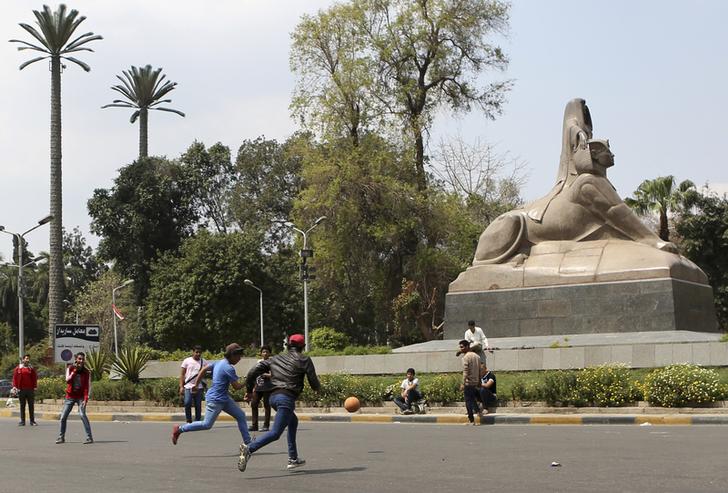Egypt's top prosecutor refers 379 to criminal court for partaking in Nahda encampment

CAIRO, Apr 8 (Aswat Masriya) - Egypt's Prosecutor General Hisham Barakat referred 379 defendants described as "members of the Muslim Brotherhood" to criminal court on Wednesday, a statement from his office said.
The prosecution said in a statement that the defendants took part in the "armed" encampment in Giza's Nahda Square, set up to show support for ousted president Mohamed Mursi, who was removed by the military in July 2013 following mass protests against his rule.
The encampment was started in late June 2013 to show solidarity with Mursi's administration. It was maintained for weeks following his ouster.
According to the prosecution, the 379 defendants took part in organising the Nahda encampment and in organising "armed marches" to several places in Giza, in which citizens were attacked.
"Civilian and police victims" have fallen as a result of their "terrorist acts," the prosecution said.
The 379 defendants are charged with organising a gathering, taking part in it, forming an armed mob, and taking part in its leadership, murder, attempted murder, resisting authorities and violence, among many other charges.
According to the statement, 187 of the defendants confessed to their membership in the Brotherhood and to partaking in the encampment, after "arming" some of the people in it, in implementation of instructions issued by the Brotherhood's leadership.
The top prosecutor has dismissed 488 others from this case, for lack of evidence against them.
The top prosecutor said in today's statement that authorities took the decision to disperse the encampment to put an end to the "crimes resulting from it," after "exhausting" all peaceful methods to end it.
The Nahda encampment and the larger Rabaa al-Adawiya encampment set up for the same purpose, were forcibly dispersed by security forces in August 2013.
The dispersals left hundreds of protesters dead in what was described by Human Rights Watch as "the most serious incident of mass unlawful killings in modern Egyptian history."
Since Mursi's ouster, Muslim Brotherhood leaders and members have often found themselves behind bars where they either serve time or await trial verdicts.
Egypt listed the Brotherhood as a terrorist organisation in December 2013 and insists it is behind the stringent wave of militancy which has targeted security personnel since the ouster of former Islamist President Mohamed Mursi.
The Brotherhood continuously denies the accusations.









facebook comments